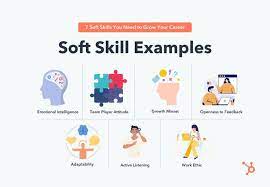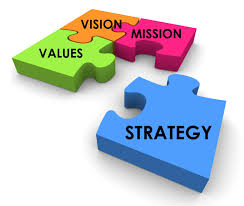Navigating Through Crisis: Strategies for Business Resilience
The Impact of Crisis Management on Businesses
In today’s fast-paced and interconnected world, businesses are constantly facing various challenges that can potentially harm their reputation and operations. One such challenge is a crisis, which can arise unexpectedly and have a significant impact on a company’s bottom line.
A crisis can take many forms, including natural disasters, product recalls, data breaches, or negative publicity. How a business responds to a crisis can make all the difference in how it is perceived by its stakeholders and the public.
Effective crisis management is crucial for businesses to navigate through turbulent times and emerge stronger on the other side. By having a well-thought-out crisis management plan in place, businesses can mitigate the impact of a crisis and protect their brand reputation.
Key elements of an effective crisis management plan include:
- Preparedness: Anticipating potential crises and developing response strategies in advance.
- Communication: Transparent and timely communication with stakeholders to maintain trust and credibility.
- Coordination: Coordinating efforts across departments to ensure a unified response to the crisis.
- Evaluation: Learning from past crises to continuously improve the crisis management process.
Businesses that excel in crisis management not only survive challenging situations but also have the opportunity to strengthen their relationships with customers, employees, investors, and other stakeholders. A well-handled crisis can demonstrate a company’s commitment to transparency, accountability, and resilience.
In conclusion, proactive crisis management is an essential aspect of running a successful business in today’s volatile environment. By investing time and resources into preparing for potential crises, businesses can safeguard their reputation and maintain trust with their stakeholders even in the face of adversity.
Understanding and Navigating Business Crises: Key Questions Answered
- What is a crisis and how does it impact businesses?
- What are common types of crises that businesses face?
- How can businesses prepare for a crisis?
- What are the key elements of an effective crisis management plan?
- How important is communication during a crisis?
- What role does leadership play in managing a crisis?
- How can businesses learn from past crises to improve their crisis management strategies?
What is a crisis and how does it impact businesses?
A crisis in the business context refers to a sudden and unexpected event that has the potential to disrupt normal operations, damage reputation, and negatively impact stakeholders. Crises can come in various forms, such as natural disasters, product recalls, cybersecurity breaches, or public scandals. The impact of a crisis on businesses can be significant, leading to financial losses, loss of trust from customers and investors, legal ramifications, and long-term damage to the brand’s reputation. Effective crisis management is essential for businesses to navigate through such challenging situations, mitigate the impact of the crisis, and emerge stronger on the other side.
What are common types of crises that businesses face?
Businesses face a range of common types of crises that can significantly impact their operations and reputation. These may include natural disasters such as floods, earthquakes, or wildfires, which can disrupt supply chains and infrastructure. Product recalls due to safety concerns or quality issues can also pose a serious threat to a company’s credibility. Data breaches and cyber-attacks are becoming increasingly prevalent, leading to potential financial losses and reputational damage. Additionally, issues related to employee misconduct, unethical practices, or negative publicity can create internal strife and external scrutiny. Effective crisis management strategies are essential for businesses to navigate through these challenges and emerge resilient.
How can businesses prepare for a crisis?
Businesses can prepare for a crisis by implementing proactive measures that help them anticipate, respond to, and mitigate potential challenges effectively. Key steps in crisis preparedness include developing a comprehensive crisis management plan that outlines roles, responsibilities, communication strategies, and response protocols. Conducting regular risk assessments to identify potential threats and vulnerabilities is also crucial. Training employees on crisis response procedures, establishing clear lines of communication with stakeholders, and conducting mock drills to simulate crisis scenarios can further enhance a business’s readiness to handle unexpected situations. By investing in proactive planning and preparation, businesses can strengthen their resilience and minimise the impact of crises on their operations and reputation.
What are the key elements of an effective crisis management plan?
An effective crisis management plan comprises several key elements that are essential for businesses to navigate through challenging situations successfully. These elements include preparedness, communication, coordination, and evaluation. Preparedness involves anticipating potential crises and developing response strategies in advance to ensure a swift and effective reaction when a crisis occurs. Communication is crucial during a crisis, requiring transparent and timely messaging to stakeholders to maintain trust and credibility. Coordination involves aligning efforts across departments to ensure a unified response to the crisis. Evaluation is also vital, as learning from past crises helps businesses continuously improve their crisis management processes and strategies for future challenges. By incorporating these key elements into their crisis management plans, businesses can enhance their resilience and ability to protect their brand reputation during times of uncertainty.
How important is communication during a crisis?
During a crisis, communication plays a pivotal role in shaping how a business is perceived and how effectively it can navigate the challenges at hand. Clear, timely, and transparent communication is crucial in providing stakeholders with accurate information, reassurance, and guidance. Effective communication during a crisis can help to maintain trust, manage expectations, and demonstrate a company’s commitment to resolving the situation. By keeping all parties informed and engaged, businesses can mitigate potential damage to their reputation and operations, as well as foster resilience and build stronger relationships with their stakeholders in the long run.
What role does leadership play in managing a crisis?
Leadership plays a crucial role in managing a crisis, as it sets the tone for how an organisation responds to and navigates through challenging situations. Effective leadership during a crisis involves making quick and well-informed decisions, providing clear direction to the team, and demonstrating confidence and resilience. Strong leaders inspire trust and confidence among stakeholders, employees, and the public, helping to maintain calm and stability during turbulent times. By showing empathy, transparency, and strategic thinking, leaders can steer their organisation towards recovery and emerge stronger from the crisis.
How can businesses learn from past crises to improve their crisis management strategies?
Businesses can learn valuable lessons from past crises to enhance their crisis management strategies. By conducting thorough post-crisis evaluations and analyses, organisations can identify what worked well and areas that need improvement. Reflecting on past experiences allows businesses to refine their crisis response plans, communication strategies, and decision-making processes. By incorporating insights gained from previous crises, businesses can better anticipate and prepare for future challenges, ultimately strengthening their overall crisis management capabilities.











